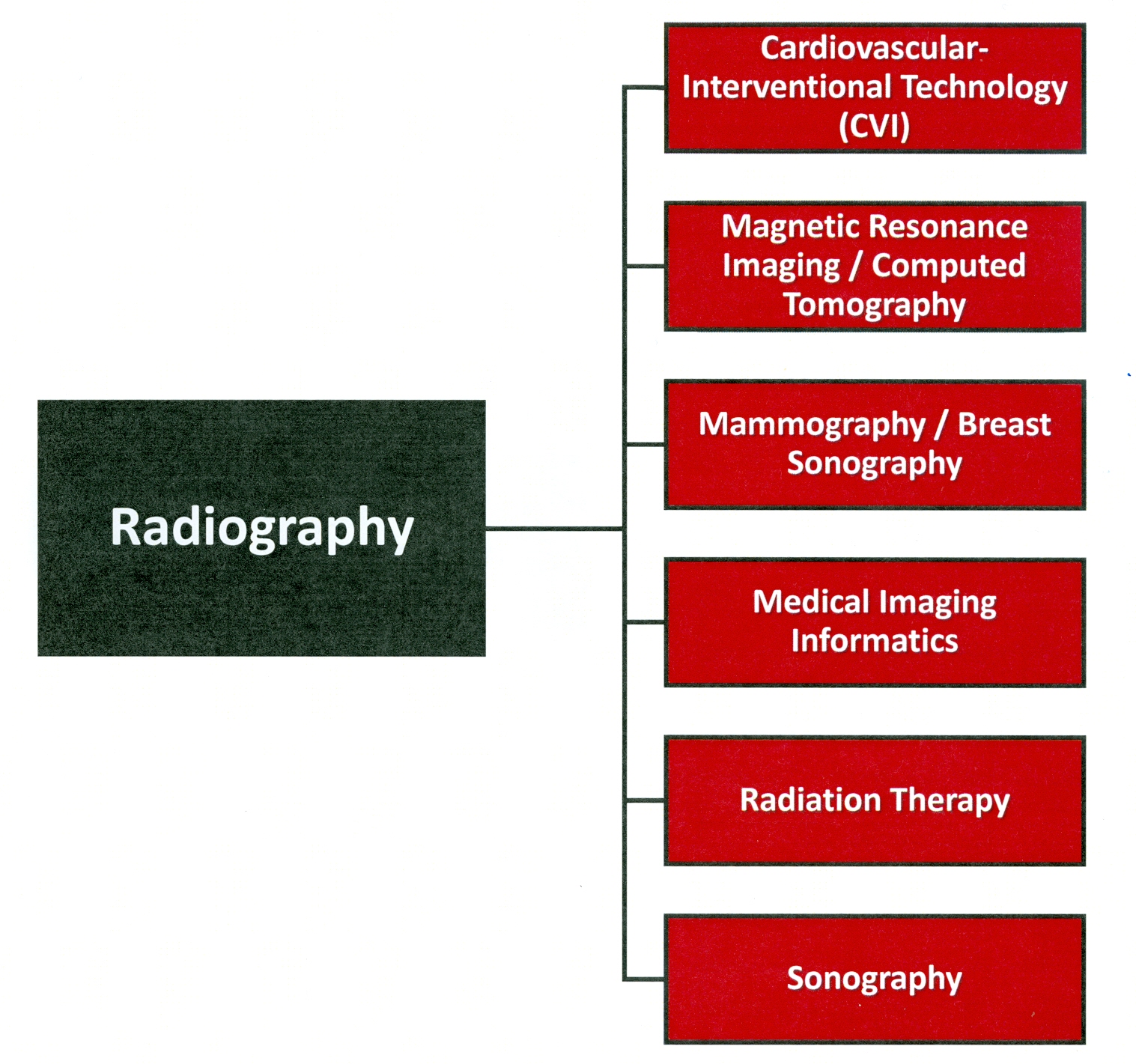College: College of Nursing and Health Professions
Department: Medical Imaging and Radiation SciencesDescription
The Radiologic Sciences Programs are administered by the Department of Medical Imaging and Radiation Sciences in the College of Nursing and Health Professions. The program is designed to produce Radiologic Science professionals who are clinically competent, advanced level radiologic sciences practitioners. The program is a "1 plus 1" model, meaning all students begin their sophomore year in radiography, then choose one of six "tracks" for their senior year.
This degree is also available in an accelerated 100% online format.
Radiography Component
It should be noted that before a student enters one of the specialty tracks, they must successfully complete the Radiography curriculum. To apply to the Radiography program please click the following link "Radiography application".






